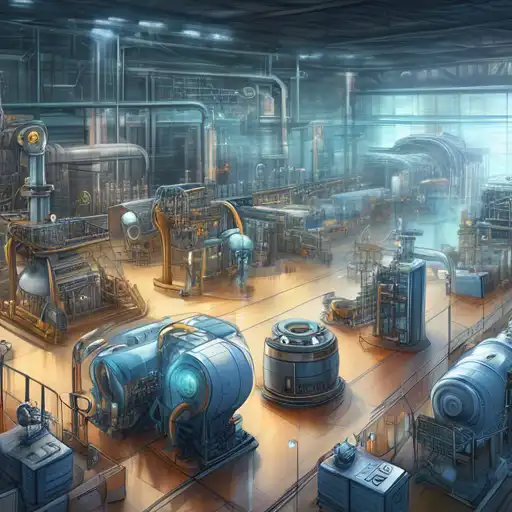Introduction to IoT in Industrial Automation
The Internet of Things (IoT) is transforming industrial automation by enabling smarter, more efficient manufacturing processes. By connecting machines, devices, and sensors to the internet, businesses can achieve unprecedented levels of operational efficiency and productivity. This article explores the profound impact of IoT on industrial automation and how it's shaping the future of manufacturing.
Key Benefits of IoT in Industrial Automation
IoT technology offers numerous advantages for industrial automation, including:
- Enhanced Efficiency: IoT devices can monitor and optimize production processes in real-time, reducing waste and increasing output.
- Predictive Maintenance: Sensors can predict equipment failures before they occur, minimizing downtime and maintenance costs.
- Improved Safety: IoT enables the monitoring of hazardous environments, protecting workers from potential dangers.
- Energy Savings: Smart systems can adjust energy use based on real-time demand, leading to significant cost reductions.
Challenges and Solutions
Despite its benefits, integrating IoT into industrial automation presents challenges such as security risks and the need for skilled personnel. However, solutions like advanced encryption and training programs are helping businesses overcome these obstacles.
Real-World Applications
From automotive to pharmaceuticals, IoT is revolutionizing industries by enabling smart factories. These facilities leverage IoT for everything from inventory management to quality control, showcasing the technology's versatility and impact.
Future Trends
The future of IoT in industrial automation looks promising, with advancements in AI and machine learning further enhancing its capabilities. As technology evolves, we can expect even greater efficiencies and innovations in the manufacturing sector.
For more insights into how technology is transforming industries, check out our articles on Smart Manufacturing and Industry 4.0.
Conclusion
The impact of IoT on industrial automation is undeniable, offering businesses the tools to improve efficiency, reduce costs, and enhance safety. As we move forward, the integration of IoT technologies will continue to play a pivotal role in shaping the future of manufacturing and industrial processes.
